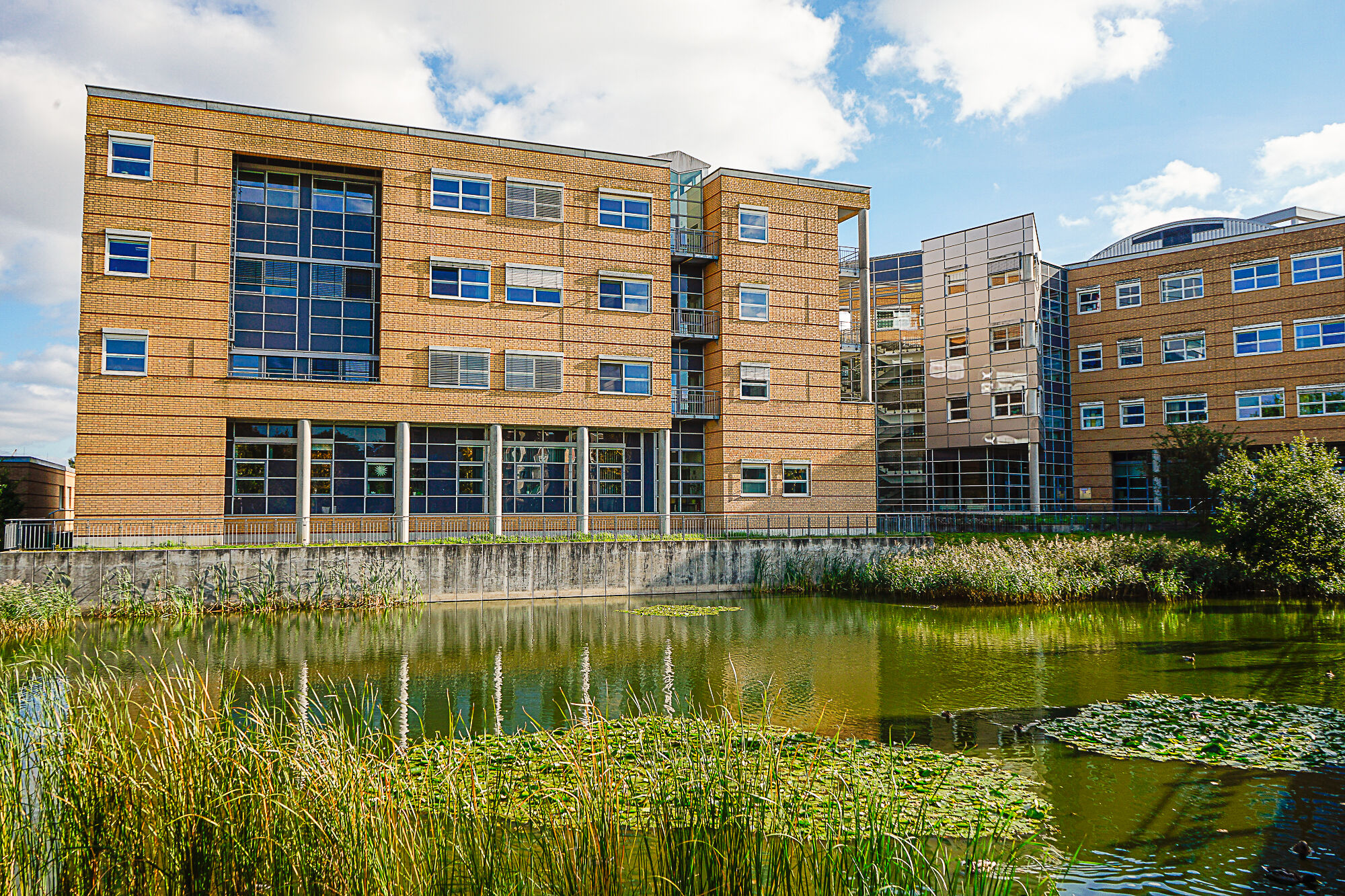Rare diseases are often a nightmare for patients and their families. They are difficult to diagnose, can cause severe physical and mental disabilities and treatment options are scarce. Pathogenic gene variants in the cellular protein degradation machine “proteasome” cause rare so-called proteasomopathies with only a few hundred diagnosed patients worldwide, many of whom are children. The diagnosis of such proteasomopathies is difficult as they are clinically perceived as two different diseases. On the one hand, there are the proteasome-associated autoinflammatory syndromes (PRAAS) with lipid metabolism disorders and severe systemic inflammation, on the other hand, there are neurodevelopmental disorders (NDD) with severe cognitive impairment, but also skeletal, cardiovascular or heart anomalies in the absence of most signs of inflammation. Whilst there are already diagnostic and therapeutic approaches for PRAAS, very little is known about the NDD form.
First author Frédéric Ebstein and his colleagues have now shown that similar molecular mechanisms underlie both clinical syndromes. In proteasomopathy patients with NDD, they were also able to elucidate the activation of cellular stress and differentiation signaling pathways as well as the activation of the immune system by dysregulated interferon signalling. Interferons are immunological messengers that exert immunostimulatory and especially antiviral effects. The poorer degradation capacity caused by the malfunctioning proteasomes leads to the accumulation of protein waste in cells, but also to the dysregulation of many of the proteasome-controlled signalling pathways. The backlog of protein waste is then recognised as a danger signal and triggers the production of interferons, which activate the innate immune system. “An interferon response is positive in itself, as it promotes defence against invaders. However, in these patients, it leads to a kind of vicious circle as it triggers an uncontrolled production of interferons that delays development processes and causes neuronal damage,” explains Prof. Elke Krüger. The authors of the study were able to identify a central signalling enzyme – the protein kinase R – as the sensor for this exaggerated response.
The study opens up new paths for diagnosing the disease and will help to offer effective therapy to affected individuals in the future, as the interferon signalling pathway can be blocked therapeutically. In addition, the results of the study can contribute towards a better understanding and a better treatment of age-related diseases such as neurodegeneration or cancer in which controlled protein degradation via the proteasome and the interferon signalling pathway may also be impaired. These questions will be addressed in more detail in future studies.
[KE1]Means less than 500 (200-300), but numbers increase because diagnostics becomes better and better
Further information
10.1126/scitranslmed.abo3189
University Medicine Greifswald | Institute of Medical Biochemistry and Molecular Biology
Article on bioworld.com
Contact at the University of Greifswald
Prof. Dr Elke Krüger
University Medicine Greifswald
Institute of Medical Biochemistry and Molecular Biology
Ferdinand-Sauerbruch-Straße / Klinikum DZ 7, 17475 Greifswald
Tel.: +49 3834 86 5400
elke.kruegermed.uni-greifswaldde
https://www.researchgate.net/profile/Elke-Krueger
https://www.linkedin.com/in/elke-krüger-37725a242/

